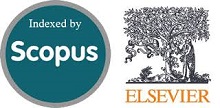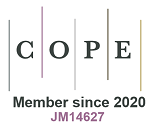Assessing the State of Modern Physics Education: Pre-test Findings and Influencing Factors
Downloads
Doi: 10.28991/ESJ-2024-SIED1-01
Full Text: PDF
Downloads
Bailey, J. (2022). History of the Atom, 1803–1932. Inventive Geniuses Who Changed the World. Springer, Cham, Switzerland. doi:10.1007/978-3-030-81381-9_8.
L'Annunziata, M. F. (2023). Birth of Modern Physics. Radioactivity, 115–167, Elsevier, Amsterdam, Netherlands. doi:10.1016/b978-0-323-90440-7.00002-8.
Salasnich, L. (2022). Modern Physics. In UNITEXT for Physics. Springer International Publishing, Cham, Switzerland. doi:10.1007/978-3-030-93743-0.
Strikman, M., Spartalian, K., & Cole, M. W. (2014). Applications of Modern Physics in Medicine. Princeton University Press, Princeton, United States. doi:10.2307/j.ctv31r2rx7.
Göbel, E. O., & Siegner, U. (2015). Quantum Metrology: Foundation of Units and Measurements. John Wiley & Sons, Hoboken, United States. doi:10.1002/9783527680887.
Zollmann, D. (1999). Research on teaching and learning quantum mechanics. Annual meeting National Association for Research in Science Teaching National Science Foundation, 28-31 March, 1999, Boston, United States.
Lobo, R. F., & Pinheiro, M. J. (2022). Advanced Topics in Contemporary Physics for Engineering: Nanophysics, Plasma Physics, and Electrodynamics. CRC Press, Boca Raton, United States. doi:10.1201/9781003285083.
Ikromjonovich, S. A. (2023). Teaching Physics Pedagogues to New Pedagogical Technologies in The Preparation of Bachelors. Horizon: Journal of Humanity and Artificial Intelligence, 2(4), 199-201..
Figliolia, M., Stabile, A., & Noce, C. (2020). Using applets to learn modern physics. Modern Physics, 18-1-18–11. IOP Publishing, Bristol, United Kingdom. doi:10.1088/978-0-7503-2678-0ch18.
Özcan, Ö. (2011). What are the students' mental models about the "spin” and "photon” concepts in modern physics? Procedia - Social and Behavioral Sciences, 15, 1372–1375. doi:10.1016/j.sbspro.2011.03.295.
National Research Council. (2000). How People Learn: Brain, Mind, Experience, and School: Expanded Edition. The National Academies Press, Washington, United States. doi:10.17226/9853.
Putica, K. B. (2023). Development and Validation of a Four-Tier Test for the Assessment of Secondary School Students' Conceptual Understanding of Amino Acids, Proteins, and Enzymes. Research in Science Education, 53(3), 651–668. doi:10.1007/s11165-022-10075-5.
Anderson, D. L., Fisher, K. M., & Norman, G. J. (2002). Development and evaluation of the conceptual inventory of natural selection. Journal of Research in Science Teaching, 39(10), 952–978. doi:10.1002/tea.10053.
Wilcox, B. R., & Lewandowski, H. J. (2016). Students' epistemologies about experimental physics: Validating the Colorado Learning Attitudes about Science Survey for experimental physics. Physical Review Physics Education Research, 12(1), 10123. doi:10.1103/PhysRevPhysEducRes.12.010123.
Gunstone, R. F. (1987). Student understanding in mechanics: A large population survey. American Journal of Physics, 55(8), 691–696. doi:10.1119/1.15058.
Dori, Y. J., & Belcher, J. (2005). How does technology-enabled active learning affect undergraduate students' understanding of electromagnetism concepts? Journal of the Learning Sciences, 14(2), 243–279. doi:10.1207/s15327809jls1402_3.
Zhu, G., & Singh, C. (2012). Surveying students' understanding of quantum mechanics in one spatial dimension. American Journal of Physics, 80(3), 252–259. doi:10.1119/1.3677653.
Podolak, K., & Danforth, J. (2013). Interactive Modern Physics Worksheets Methodology and Assessment. European Journal of Physics Education, 4(2), 27-31.
Halim, A., Nurhasanah, Zainuddin, Musdar, Elisa, Mahzum, E., & Irwandi, I. (2021). Student's misconception and thinking style on modern physics course. Journal of Physics: Conference Series, 1882(1), 12018. doi:10.1088/1742-6596/1882/1/012018.
Fonseca, D., Climent, A., Vicent, L., Canaleta, X. (2016). Learning4Work. Designing a New Evaluation System Based on Scenario Centered Curriculum Methodology: The Pre-test. Learning and Collaboration Technologies, LCT 2016, Lecture Notes in Computer Science, 9753, Springer, Cham, Switzerland. doi:10.1007/978-3-319-39483-1_1.
Karami, M., Pakmehr, H., & Aghili, A. (2012). Another View to Importance of Teaching Methods in Curriculum: Collaborative Learning and Students' Critical Thinking Disposition. Procedia - Social and Behavioral Sciences, 46, 3266–3270. doi:10.1016/j.sbspro.2012.06.048.
Zarouk, M. Y., Olivera, E., & Khaldi, M. (2020). The impact of flipped project-based learning on self-regulation in higher education. International Journal of Emerging Technologies in Learning, 15(17), 127–147. doi:10.3991/ijet.v15i17.14135.
Mejia, C. R., Valladares-Garrido, M. J., Miñan-Tapia, A., Serrano, F. T., Tobler-Gómez, L. E., Pereda-Castro, W., Mendoza-Flores, C. R., Mundaca-Manay, M. Y., & Valladares-Garrido, D. (2017). Use, knowledge, and perception of the scientific contribution of Sci-Hub in medical students: Study in six countries in Latin America. PLoS ONE, 12(10), 185673. doi:10.1371/journal.pone.0185673.
Velazco, D. J. M., Hinostroza, E. M. F., Moreno, J. E. S., Cerda, J. F. P., & Barros, M. V. S. (2022). Attitudes of Ecuadorian Secondary School Teaching Staff towards Online STEM Development in 2022. International Journal of Learning, Teaching and Educational Research, 21(7), 59–81. doi:10.26803/ijlter.21.7.4.
Rivadeneira, J., & Inga, E. (2023). Interactive Peer Instruction Method Applied to Classroom Environments Considering a Learning Engineering Approach to Innovate the Teaching–Learning Process. Education Sciences, 13(3), 301. doi:10.3390/educsci13030301.
Kohnle, A., Mclean, S., & Aliotta, M. (2011). Towards a conceptual diagnostic survey in nuclear physics. European Journal of Physics, 32(1), 55–62. doi:10.1088/0143-0807/32/1/006.
SENESCYT. (2022). Statistics of Higher Education, Science, Technology and Innovation. Higher Education Information System (SIAU). National Secretariat of Higher Education, Science, Technology, and Innovation (SENESCYT), Quito, Ecuador. Available online: https://siau.senescyt.gob.ec/estadisticas-de-educacion-superior-ciencia-tecnologia-e-innovacion/ (accessed on June 2023). (In Spanish).
van der Walt, F., & Nkoyi, A. (2022). Students' Learning Styles and Perception of Online Learning. Higher Education in the Face of a Global Pandemic, 96–119, Brill, Leiden, Netherlands. doi:10.1163/9789004514461_005.
Tene, T., Vacacela Gomez, C., Tubon Usca, G., Suquillo, B., & Bellucci, S. (2021). Measurement of radon exhalation rate from building materials: The case of Highland Region of Ecuador. Construction and Building Materials, 293, 123282. doi:10.1016/j.conbuildmat.2021.123282.
Prahani, B. K., Amiruddin, M. Z. Bin, Suprapto, N., Deta, U. A., & Cheng, T. H. (2022). The Trend of Physics Education Research during COVID-19 Pandemic. International Journal of Educational Methodology, 8(3), 517–533. doi:10.12973/ijem.8.3.517.
Yuniarti Suhendi, H., Ali Ramdhani, M., & S. Irwansyah, F. (2018). Verification Concept of Assesment for Physics Education Student Learning Outcome. International Journal of Engineering & Technology, 7(3.21), 321. doi:10.14419/ijet.v7i3.21.17181.
Saepuzaman, D., Retnawati, H., Istiyono, E., & Haryanto. (2021). Can innovative learning affect student HOTS achievements?: A meta-analysis study. Pegem Journal of Education and Instruction, 11(4). doi:10.47750/pegegog.11.04.28.
- This work (including HTML and PDF Files) is licensed under a Creative Commons Attribution 4.0 International License.







